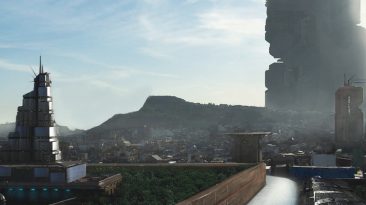Militaries around the world are money-eating machines. And they keep getting more expensive. In 2019, the world spent $1.917 trillion on all the different militaries. But what if every country agreed to get rid of its military forces?
Where would those funds go? What can we learn from Costa Rica? Would there be no more war?
You probably wouldn’t believe me if I told you that every single military in the world disbanded last night. But I’m going to ask you to put aside your doubts and walk through this new, non-military world with me.
The cash is flowing. The United States suddenly has $732 billion available in its budget. China has $261 billion, and India has $71.1 billion in extra funds. And these are just the top three military spenders. Would countries use this freed-up cash wisely? To figure that out, let’s look at Costa Rica.
Costa Rica has been without military forces since 1948. The government even transformed the military headquarters into a national art museum. And it reallocated its former military budget – all of it – to healthcare, education, and environmental protection.
But that doesn’t mean they don’t have any crime or violence. Instead of a military, Costa Rica has a stronger police force that defends its borders. You’d see something similar happen in larger countries, like the U.S.
Instead of spending money on the military, the U.S. could funnel its funds into expanding health care, making college more affordable, and upgrading its infrastructure. With more money going to health care, countries would be better equipped to face new diseases.
During the COVID-19 pandemic, The U.S. Pentagon had an abundance of money. But the country had little funding to provide ventilators, respirators, masks, and other necessary tools to fight the pandemic.
If everyone got rid of thier militaries, the military budgets could be used to protect people from public health crises. The changes would impact you and everyone around you. Money would no longer be a barrier if you wanted to go to college. Aging pipes, crumbling roads, and polluted water systems would be fixed.
The funds could also be used to lift people out of poverty and homelessness, which would make communities stronger and healthier. Each country would have its own priorities and decide how to use its former military budget.
Some governments might decide to use it to lower their debt, or even give the money back to taxpayers. It would also be a huge win for the environment. The U.S. military is the world’s top petroleum user and the largest carbon polluter.
Without militaries pumping carbon into the atmosphere, the world would be much closer to a sustainable future. And stopping climate change is expensive. Some reports estimate that we’d need to spend $50 trillion on renewables, electric cars, carbon capture, hydrogen, and biofuels. So we’ll need all the extra funds we can get if we want to avoid climate catastrophes. But what about war?
Well, I’m sorry to say this, but the world wouldn’t be at peace just because there are no militaries. Disagreements between countries could still become violent. And there would still be groups of people who want to harm or take advantage of others.
So, some of the previous military funding would go to larger police forces, who would take on more responsibilities and become increasingly militarized. Because war wouldn’t disappear, countries would reserve the right to call their citizens to serve in case of an emergency.
So if you’re between the ages of 18 and 60, you could be drafted. But hopefully, without official militaries, countries would be more reluctant to go to war. Or the opposite could happen, and you could find yourself fighting in World War III.
Sources
- “These Are The 31 Countries That Don’t Have A Military”. 2021. Business Insider.
- “Countries Without Militaries”. Gilsinan, Kathy. 2014. The Atlantic.
- “Global Military Spending Just Saw Its Biggest Spike In A Decade, But The US Outspends Everyone Else By Far”. 2021. Business Insider.
- “The biggest armies in the world ranked by active military personnel in 2021”. 2021. Statista.
- “Here’s What We Could Have If We Slashed the Military Budget”. Lindsey, Koshgarian. 2018. jacobinmag.com.
- “It’s Time to Rein in Inflated Military Budgets”. Negin, Elliott. 2020. Scientific American.



























